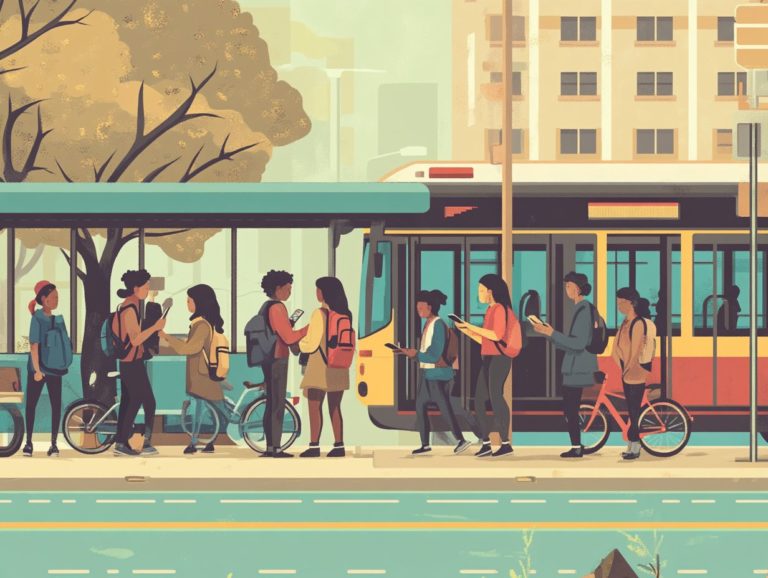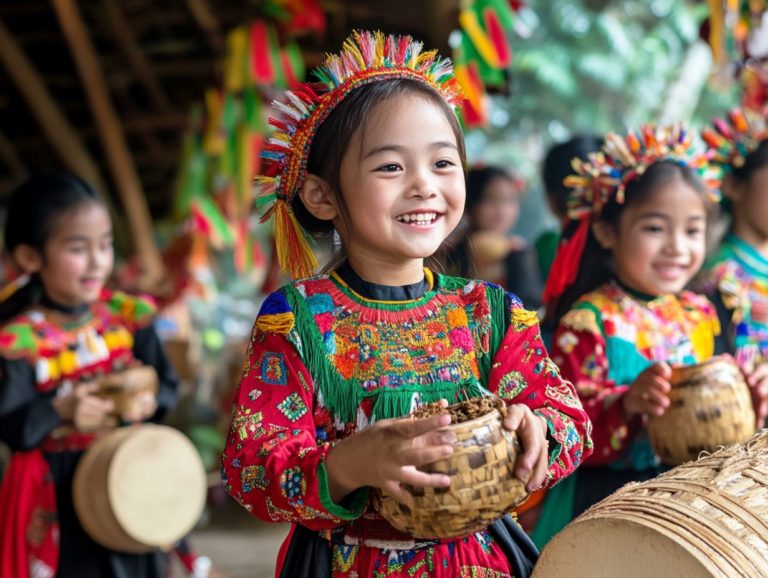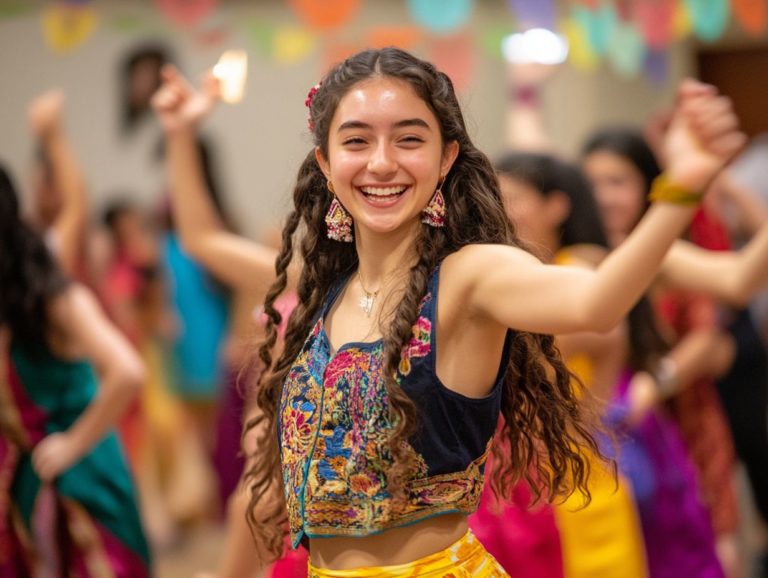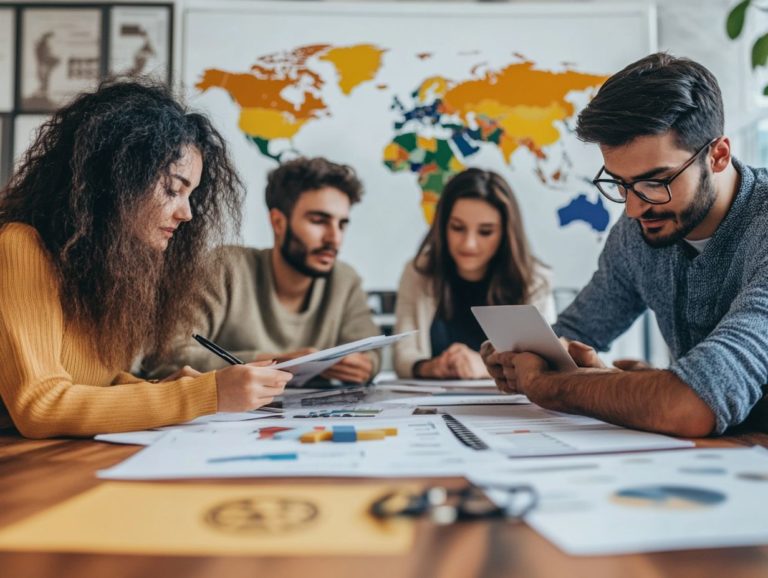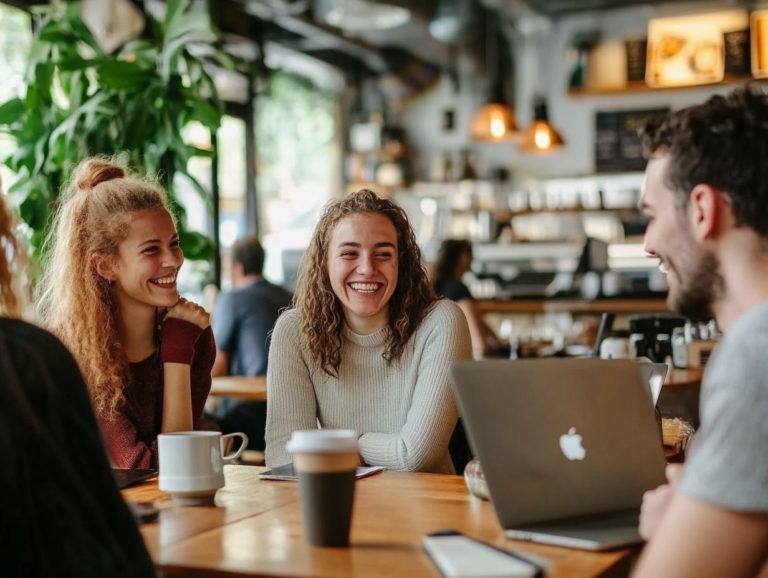Cultural Adjustment Workshops: What to Expect
Navigating a new culture can be an exhilarating yet daunting experience. It often stirs feelings of confusion or isolation.
Cultural Adjustment Workshops are designed to offer a supportive environment that eases this transition. They provide valuable insights into the nuances of intercultural communication and help you mitigate culture shock.
This article delves into the benefits of attending these workshops and outlines what you can expect as a participant. You’ll learn how to select the right one for your needs and tips to maximize your experience.
Join in as you explore the essential elements of cultural adjustment!
Contents
Key Takeaways:
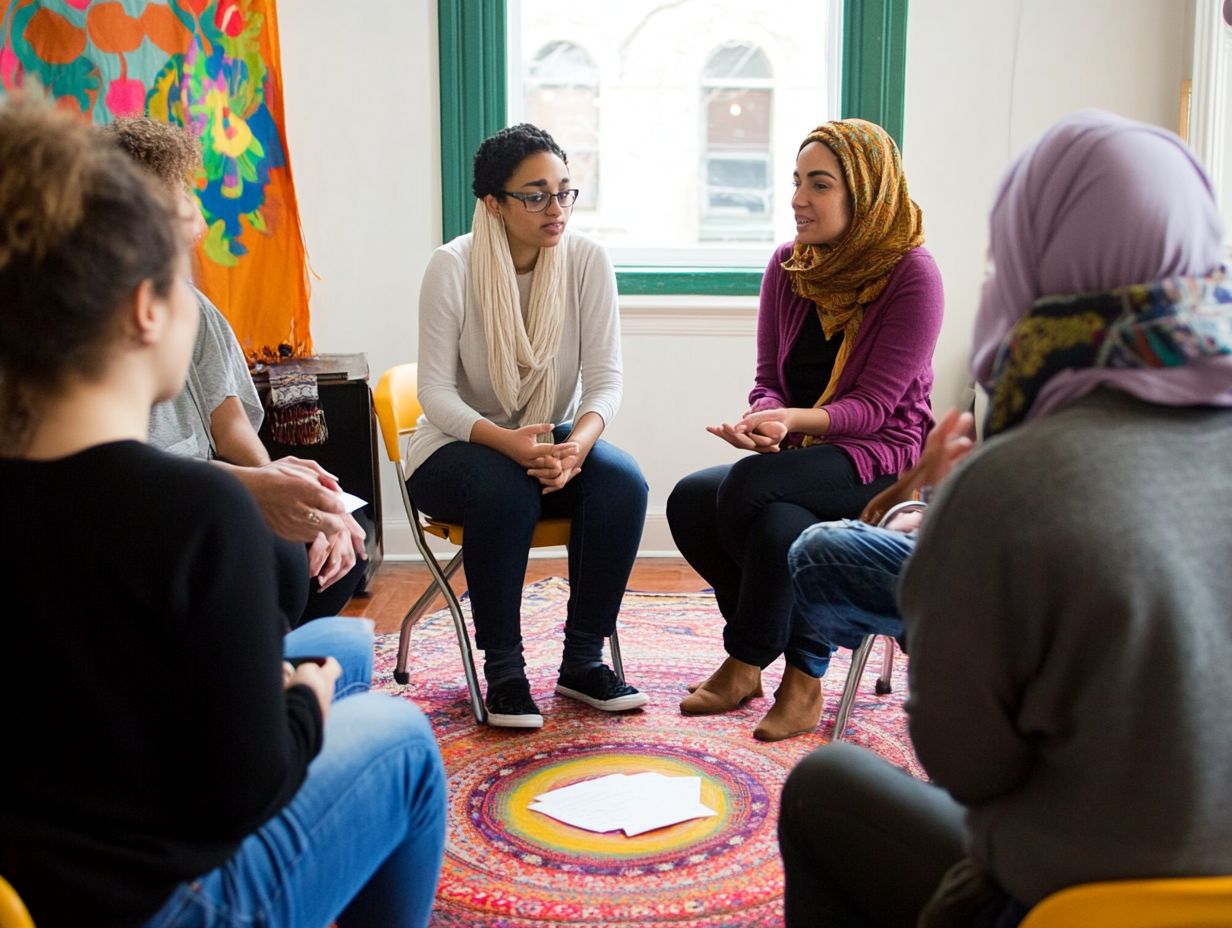
- Join a workshop to boost your intercultural communication skills and ease culture shock!
- Engage in activities to prepare for and reduce culture shock.
- Choose the right workshop by considering factors like format and topics covered, and make the most of it by actively participating and preparing beforehand.
What are Cultural Adjustment Workshops?
Cultural adjustment workshops are tailored programs designed to help you adapt to a new culture while studying abroad. They address issues like culture shock, homesickness, and communication barriers.
You ll find a safe space to express your emotions and gain insight into the psychological challenges that can arise during such a transitional period. Led by experts from organizations like Brown’s Psychological Services, these sessions aim to foster personal growth and provide social support for a successful adaptation in unfamiliar territory.
Through structured activities, these workshops guide you through the various stages of adjustment. They help you better understand your feelings and responses to new experiences.
You ll engage in discussions that touch on common emotional responses such as anxiety and frustration. These discussions equip you with valuable coping strategies like mindfulness and peer support.
By creating a sense of community, these programs alleviate feelings of isolation and encourage you to develop lasting friendships. This enhances your overall sense of belonging in your host country.
Ultimately, cultural adjustment workshops enable you to embrace your experiences while fostering resilience and open-mindedness as you adapt to your new environment.
Benefits of Attending a Cultural Adjustment Workshop
Attending a cultural adjustment workshop presents a wealth of benefits, including enhanced intercultural communication skills, alleviated culture shock, and significant personal growth. These are essential tools for students facing the complexities of life in a foreign environment.
These workshops do more than facilitate cultural acclimatization. They offer valuable insights into the emotional responses and physical symptoms tied to homesickness and psychological challenges.
By fostering social support networks, they promote the formation of meaningful friendships, which can be instrumental in navigating the adaptation process.
Improving Intercultural Communication Skills
Improving your intercultural communication skills is a key focus of cultural adjustment workshops. These are designed to help you understand and navigate the cultural differences you encounter in a new environment.
This aspect of the workshop tackles common communication challenges that arise from unfamiliar customs and social norms. It enables you to connect more effectively with locals and peers.
By enhancing your communication skills, you can better express your feelings and reduce irritability or hostility that may arise from misunderstandings.
You ll engage in interactive activities aimed at fostering active listening and open-mindedness both essential when encountering diverse perspectives.
Role-playing scenarios provide a valuable opportunity for you to practice adjusting your verbal and non-verbal communication styles. This ensures you are well-equipped to respond sensitively to various cultural cues.
The workshops also emphasize the importance of empathy and adaptability. They encourage you to reflect on your own cultural biases while cultivating an appreciation for the values and traditions of others.
Through these techniques, you ll develop essential skills and gain confidence, ultimately smoothing your transition into a multicultural setting.
Reducing Culture Shock
Reducing culture shock is a fundamental goal of workshops that help with adjusting to new cultures. Here, you ll gain valuable tools to recognize and manage the emotional rollercoaster that comes with this transitional phase.
Through a blend of practical exercises and engaging discussions, you ll learn to identify that exhilarating euphoria at the start, followed by common feelings of confusion or anxiety during the adaptation stage. These workshops also prepare you for the feelings you might have when you return home after living abroad.
By exploring various coping mechanisms like journaling your experiences, immersing yourself in local community events, and building a support network with both peers and locals you ll foster resilience.
Personal stories shared in these workshops often illustrate how someone overcame feelings of isolation through volunteer work, while another found solace in art, using creativity to bridge cultural gaps.
These strategies help you navigate the emotional turbulence of cultural transitions and enable you to approach your environment with curiosity and openness, enriching your overall experience in ways you might not have imagined.
What to Expect at a Cultural Adjustment Workshop
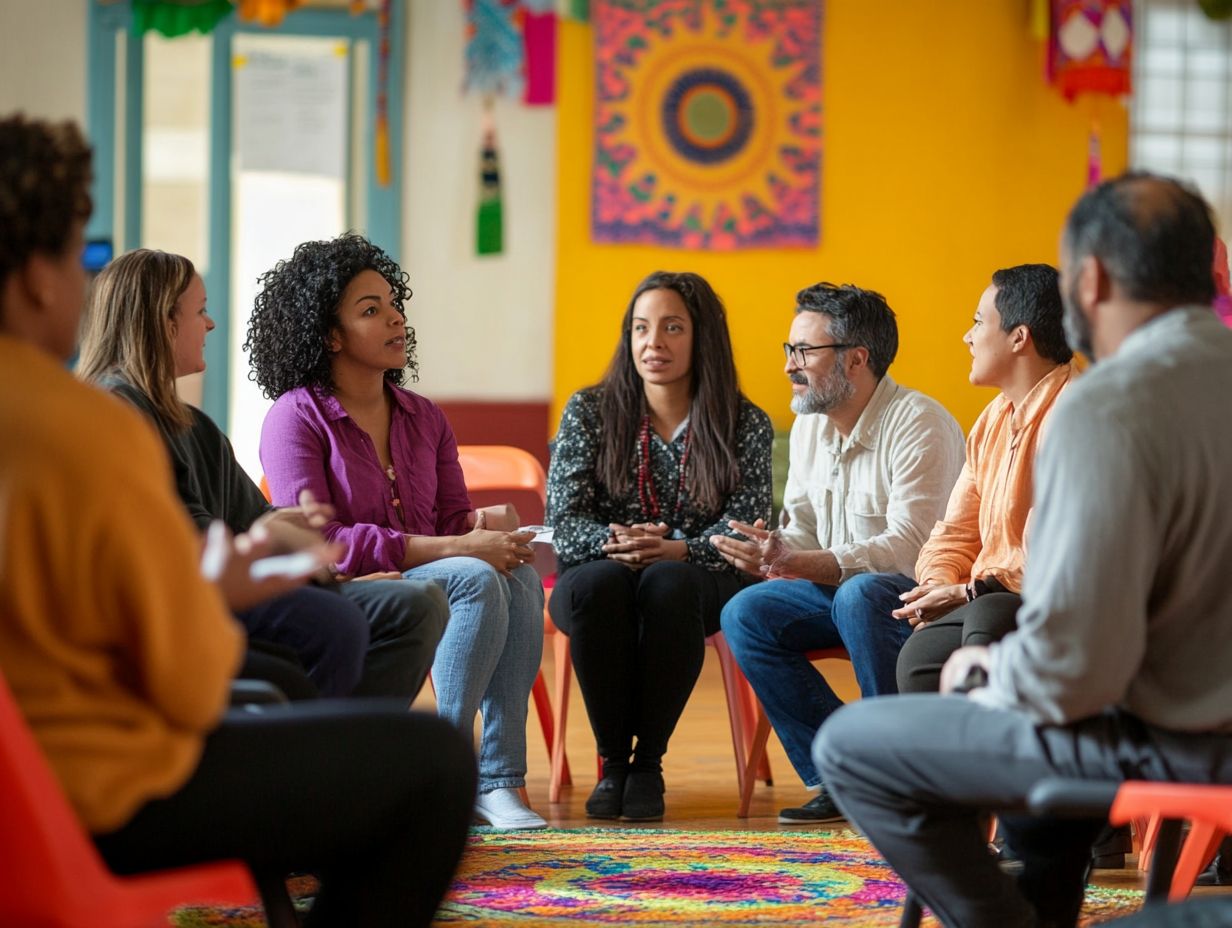
At a cultural adjustment workshop, you can anticipate a rich and immersive experience that delves into various topics crucial for adapting to a new culture. Get ready to tackle themes like homesickness, the importance of social support, and what to expect during the stages of cultural adjustment, as well as strategies for coping with psychological challenges.
These sessions include in-depth discussions about cultural values, the subtleties of foreign languages, and local customs. This offers you a well-rounded perspective on the unfamiliar environment you’re stepping into.
You ll also participate in interactive activities and exercises aimed at eliciting emotional responses and nurturing connections with your peers, making your adjustment journey significantly more manageable.
Topics Covered
The topics covered in cultural adjustment workshops are diverse and tailored to meet your specific needs as a student. You ll engage in discussions about culture shock, social support systems, and the psychological services available through organizations like Brown’s Psychological Services.
These workshops delve into the emotional reactions and physical symptoms associated with homesickness. They also provide valuable insights into the cultural values and unfamiliar customs you may encounter during your time abroad.
Beyond these essential topics, the workshops explore practical strategies for building meaningful connections and navigating new social environments. These are key components for fostering a genuine sense of belonging.
You ll have the opportunity to participate in role-playing exercises designed to enhance your communication skills, helping you bridge cultural gaps effectively.
By addressing common challenges, such as dealing with academic pressures and managing financial concerns in a foreign context, you ll be better equipped to prepare for your transformative journey.
Ultimately, these workshops enable you with the tools and resources necessary to thrive in an unfamiliar setting, ensuring a smoother transition and enriching your global experience.
Join us and transform your experience abroad!
Activities and Exercises
Activities and exercises in a cultural adjustment workshop are crafted to enhance your personal growth. They assist you in processing the emotional reactions that come with adapting to a new culture. These interactive sessions might feature role-playing scenarios, engaging group discussions, and journaling activities that invite you to share your experiences with culture shock and homesickness. By immersing yourself in these exercises, you re not only developing coping strategies but also forging a supportive community with peers who are navigating similar challenges!
This nurturing environment enables you to explore your feelings candidly. It fosters emotional resilience, which means building the strength to bounce back from difficulties, and enhances self-awareness. Various activities, such as team-building exercises, elevate your communication skills while encouraging you to embrace diversity. Objective feedback from facilitators provides valuable guidance for your personal reflections, helping you glean insights into your reactions and behaviors.
These workshops serve as vital stepping stones for your cultural acclimatization, or the process of adjusting to a new culture. They equip you with practical tools to effectively navigate your new surroundings and enrich your overall experience in a foreign environment.
Choosing the Right Cultural Adjustment Workshop
Selecting the right cultural adjustment workshop is essential for you as a student navigating the complexities of culture shock and striving to adapt to a new environment. Key factors to consider include the workshop’s emphasis on emotional support, the credentials of the facilitators, and the specific needs you may have.
As you explore your options, seek out workshops provided by reputable organizations, such as Brown’s Psychological Services. These workshops are tailored to address the various stages of adjustment and the emotional responses that often accompany this transition.
Factors to Consider
When selecting a cultural adjustment workshop, it’s important to consider several factors to ensure the program truly meets your needs as you tackle culture shock and homesickness. Key elements include the workshop’s content, the backgrounds of the facilitators, and the availability of psychological services for that extra layer of support during your adjustment journey. Feeling comfortable and understood in the workshop environment is essential; it fosters a more effective learning experience.
The format and duration of the workshop matter too. Interactive sessions can spark engagement, allowing you to share your experiences and learn from others in a supportive atmosphere.
Don’t underestimate the importance of the workshop’s location; a convenient and accessible venue can significantly reduce stress and boost attendance. Taking the time to review testimonials or feedback from past attendees can offer valuable insights into the workshop’s effectiveness and impact, helping you make a well-informed decision.
By considering these factors, you can ensure a holistic approach to receiving the support you need as you transition into a new culture.
Types of Workshops Available
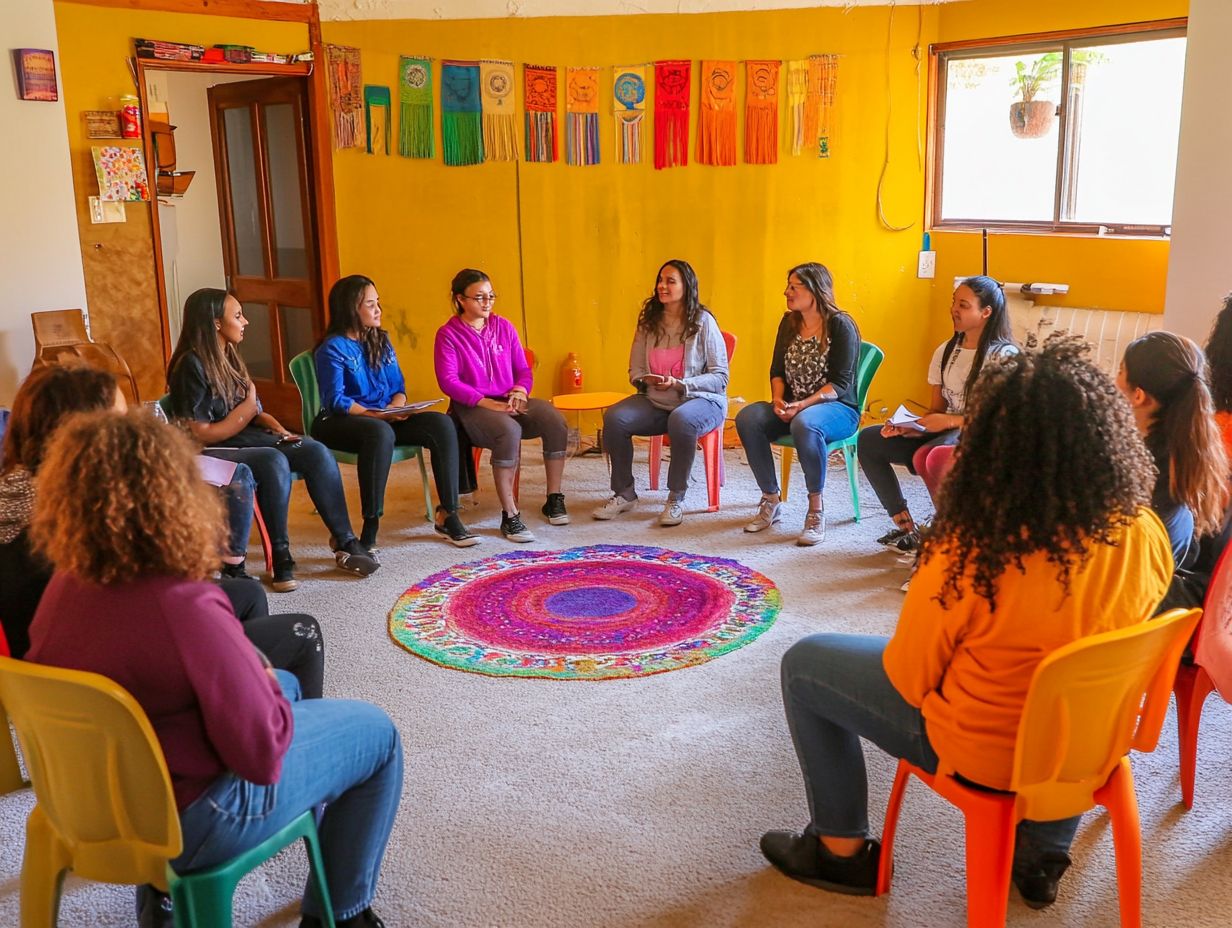
Cultural adjustment workshops come in various forms, each meticulously crafted to meet the specific needs of students studying abroad. You’ll find workshops focusing on emotional resilience, communication skills, or cultural awareness, all designed to provide targeted support for different facets of the adjustment process. By familiarizing yourself with the various workshop options available, you can choose the one that best addresses your unique challenges with culture shock and adapting to a new environment.
For example, some workshops may emphasize the enhancement of interpersonal communication, which involves learning to effectively communicate with new friends in a foreign language. They guide you through navigating language barriers and societal norms in your new surroundings. Others might focus on building emotional intelligence, equipping you with valuable tools to manage the stress and anxiety that often accompany cultural transitions.
Then there are practical workshops that incorporate engaging activities, such as cooking classes or art sessions that highlight local traditions! These activities allow you to deepen your cultural understanding while fostering a sense of community. Ultimately, these diverse workshop offerings enable you to engage meaningfully, paving the way for a more successful and enriching study abroad experience.
Ready to embark on this journey? Sign up for a workshop today and take the first step toward thriving in your new cultural environment!
Tips for Making the Most of a Cultural Adjustment Workshop
To truly benefit from a cultural adjustment workshop, you ll want to prepare ahead of time, engage actively, and connect meaningfully with both facilitators and fellow participants.
Approach these workshops with an open mind and a readiness to share your own experiences regarding culture shock and the stages of adjustment. Engaging effectively means asking questions, providing feedback, and taking chances to connect with others.
This not only enriches your learning experience but also fosters personal growth as you navigate your new environment.
Preparing for the Workshop
Preparing for a cultural adjustment workshop is crucial for maximizing your experience. It sets the tone for your mindset and emotional readiness.
Take some time to reflect on your encounters with culture shock and homesickness. Consider the specific areas you want to address during the workshop.
Arriving with clear goals helps you engage more effectively and truly benefit from the resources and insights offered throughout the program.
Try mindfulness exercises to calm any pre-workshop jitters and foster a positive outlook. These are techniques to help you stay calm and focused.
You might also find journaling useful to articulate your feelings and thoughts about the challenges you face, leading to deeper insights during discussions.
Connecting with peers before the workshop can be incredibly beneficial, creating a support network that facilitates open dialogue about your adjustment experiences.
Imagine succeeding and believe you can grow; this will boost your excitement for the workshop!
Participating and Engaging
Participating in a cultural adjustment workshop is essential for cultivating a supportive group dynamic and promoting your personal growth.
You should feel enabled to share your experiences and insights regarding culture shock and emotional reactions. This openness can lead to enriching discussions and connections with your fellow participants.
Your active engagement not only enhances your learning experience but also helps you build a network of social support, which can be invaluable during the adaptation phase.
To make the most of this experience, don t hesitate to ask questions, seek clarification, or share your own perspectives during discussions.
By actively listening to both facilitators and peers, you can gain diverse viewpoints that may aid you in your journey of adjustment.
Engaging in group activities and exercises fosters a sense of belonging, allowing you to contribute meaningfully and feel valued.
Embracing this collaborative atmosphere enhances the overall workshop experience and lays the groundwork for meaningful relationships, which are crucial for thriving in a new cultural landscape.
Frequently Asked Questions
What are Cultural Adjustment Workshops and who should attend?
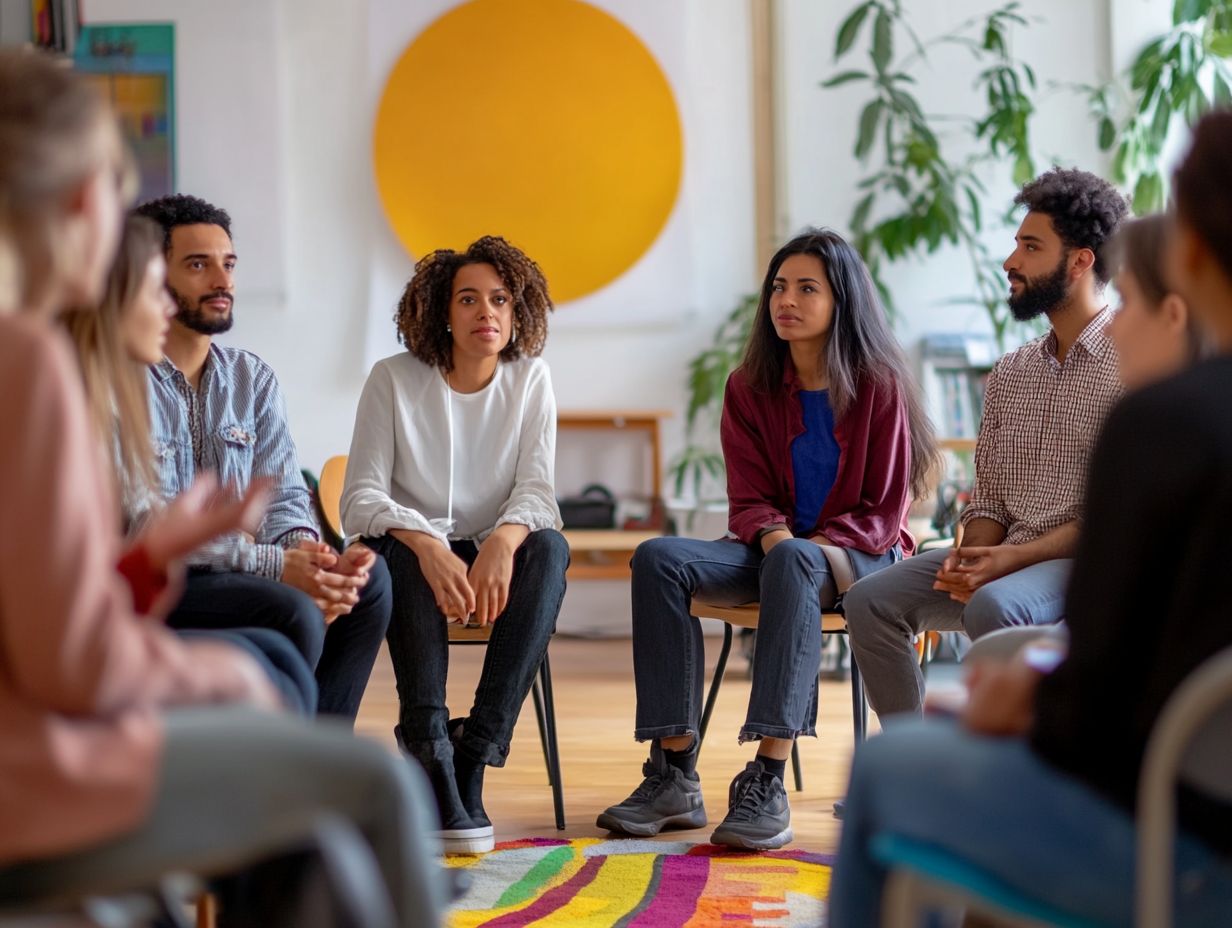
Cultural Adjustment Workshops are designed to help individuals adapt to a new culture or environment. They provide valuable information, resources, and strategies for successfully navigating cultural differences.
These workshops are beneficial for anyone experiencing cultural adjustment, whether moving to a new country, starting a new job with a diverse team, or studying abroad. They are also helpful for individuals who work with people from different cultures to improve their cultural competency.
What can I expect to learn in these workshops?
The workshops cover a variety of topics such as cultural norms and values, communication styles, social customs, and practical tips for adjusting to a new culture.
They also provide a safe space for participants to ask questions and share their experiences.
How long are the workshops and how often are they held?
The length and frequency of the workshops may vary depending on the organization hosting them. Some workshops may be a one-time event, while others may be a series of sessions.
It is best to check with the organization for specific details.
Do I need to pay to attend these workshops?
Some organizations charge a fee for their workshops. Others may offer them for free. Check with the organization to see if there are any costs involved.
Can I attend these workshops even if I am not adjusting to a new culture?
Yes! These workshops welcome anyone interested in learning about different cultures. It’s a fantastic chance to broaden your cultural knowledge.

